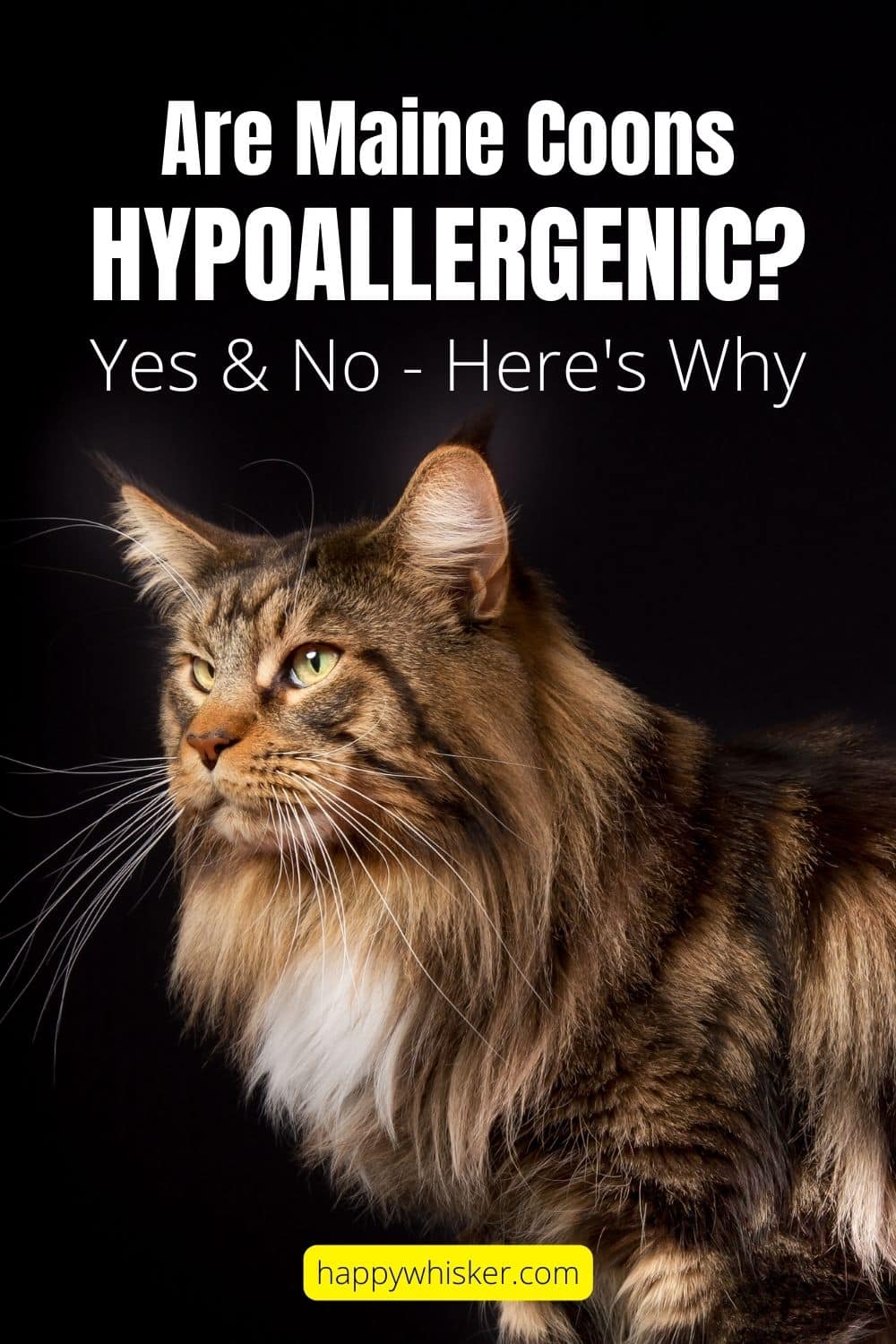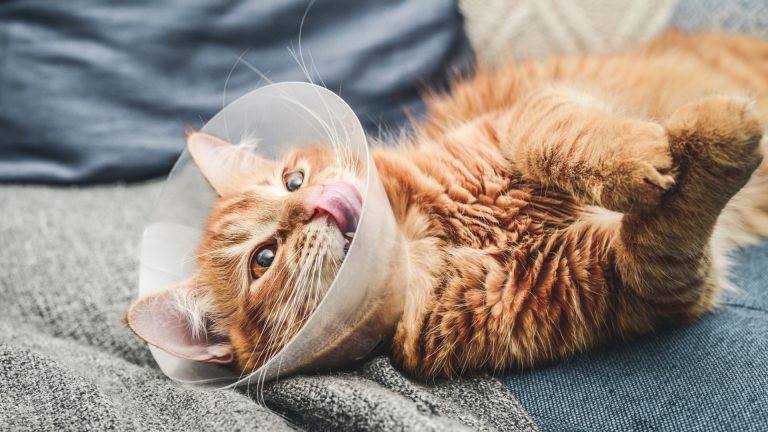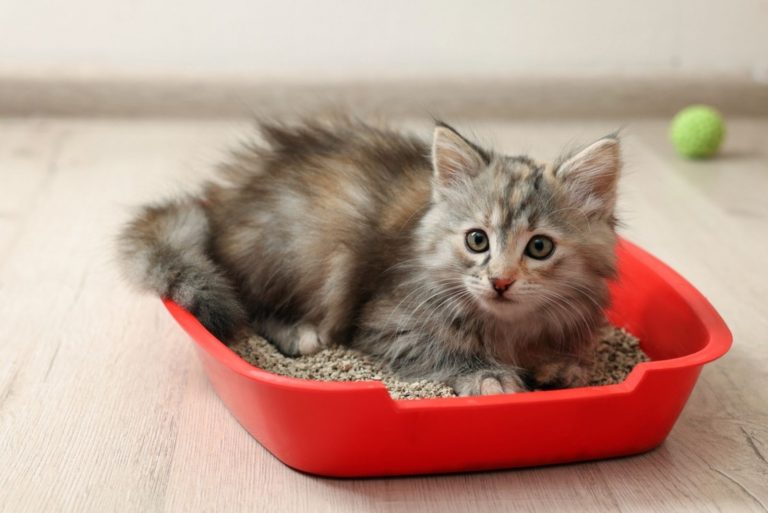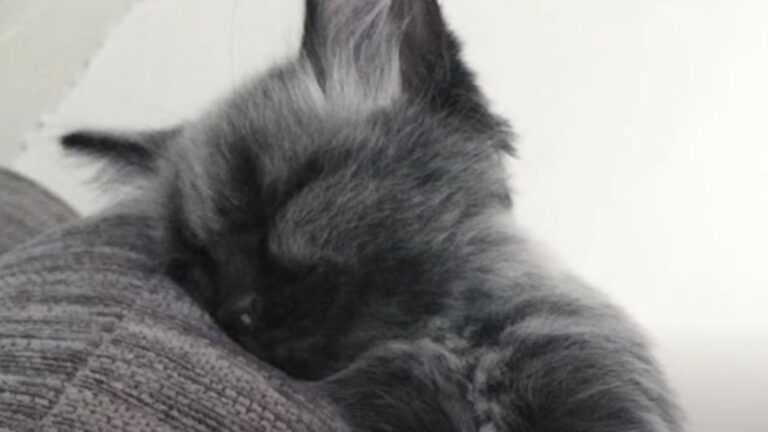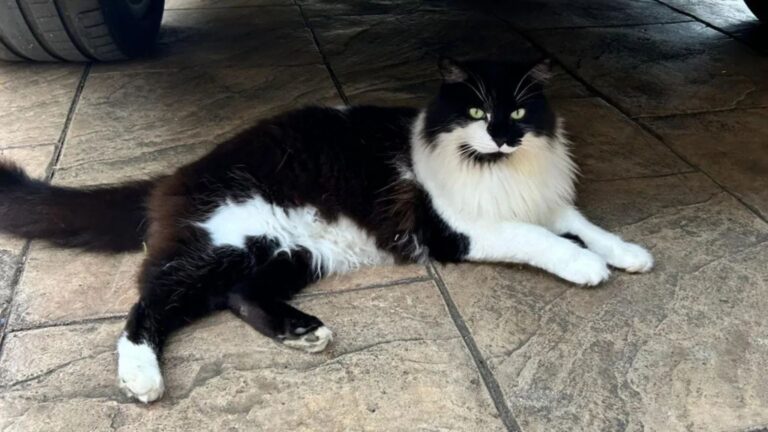Are Maine Coons Hypoallergenic? Yes & No – Here’s Why
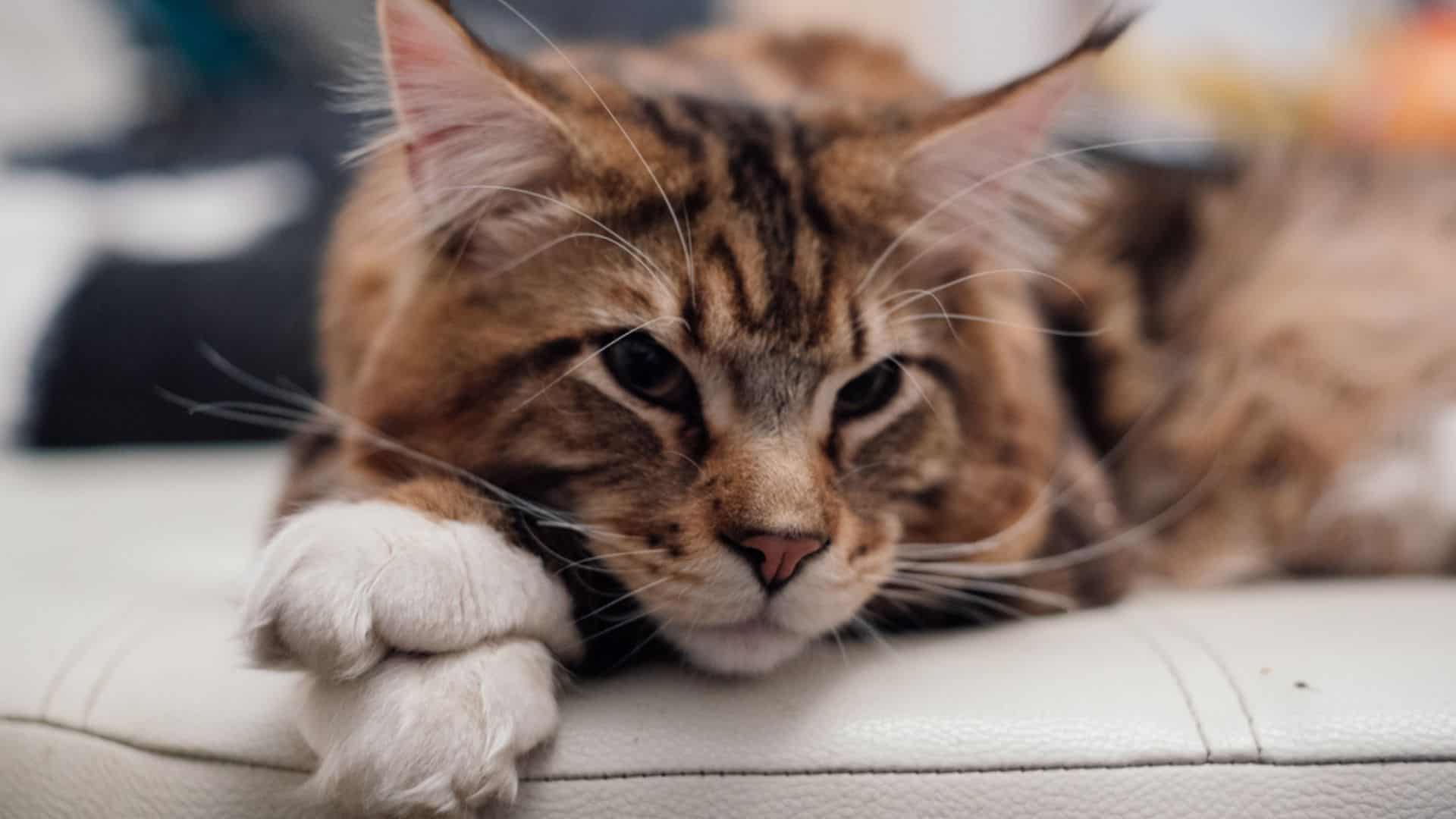
How would you describe the fur of Maine Coons? I would say it’s very long, two-layered, thick, fluffy, and dense. I think most people would agree with me.
Because of the nature of their coat, it makes sense that many people are wondering Are Maine Coons hypoallergenic?
Maine Coon cats are somewhat hypoallergenic. Technically, there is no such thing as a hypoallergenic cat. All cats produce allergens that trigger some people’s allergic reactions.
On the other hand, Maine Coons might be a good choice for people who are not as sensitive to cat allergens. How so? Read on to find out.
Are Maine Coons Hypoallergenic?
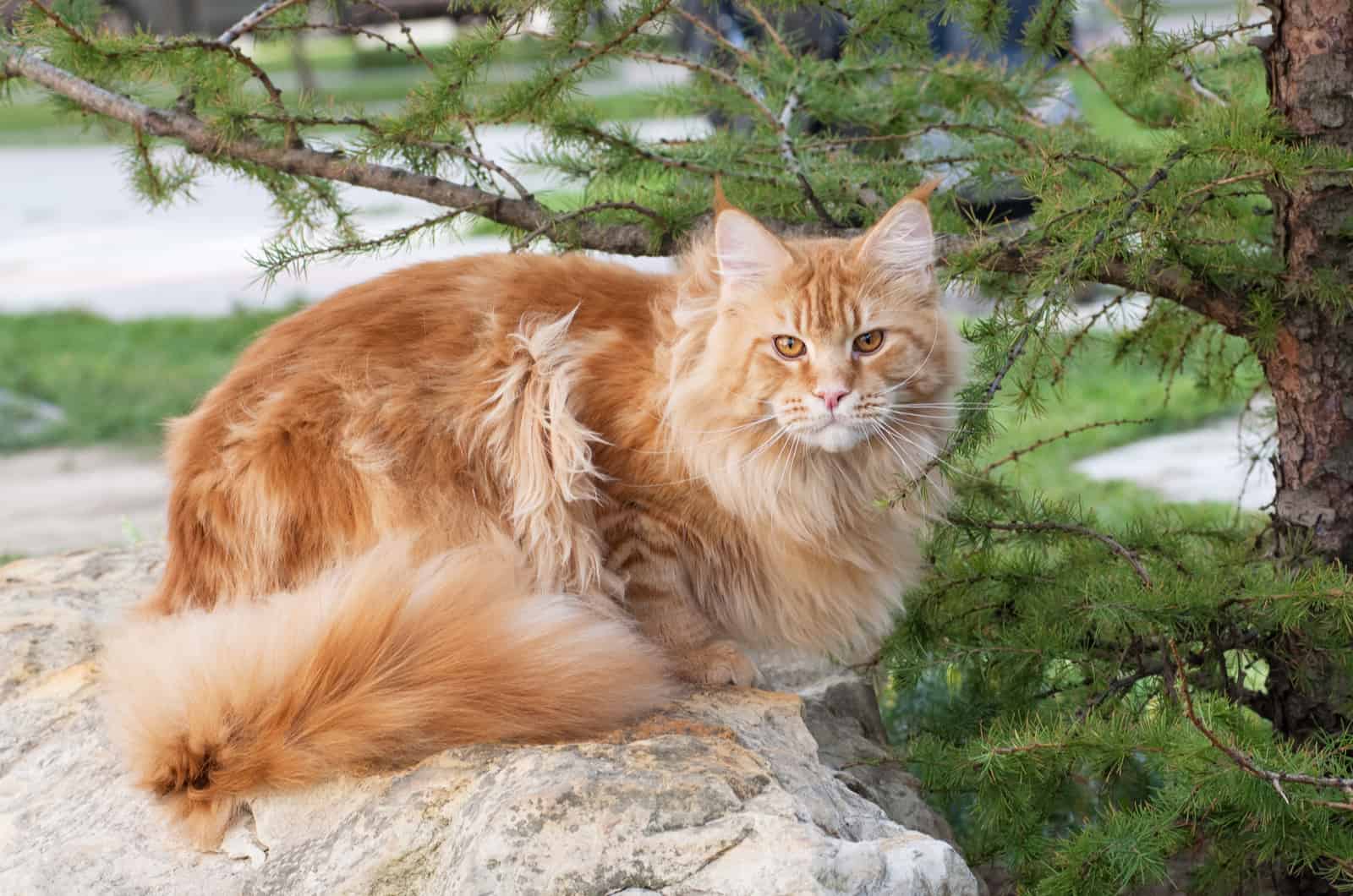
Let’s first clear up what hypoallergenic even means. “Hypoallergenic” refers to something having a low risk of eliciting an allergic reaction. A hypoallergenic cat would be a cat that is less likely to trigger an allergic reaction.
Unfortunately, Maine Coons are not on the “Hypoallergenic cats” list. These cats produce the standard amount of the cat allergen (a protein known as Fel D1) as most cats do.
However, there is one thing that sets Maine Coons apart from other cats; they do not shed as much!
Shedded hair plays a massive role in triggering allergies, and the fact that Maine Coons do not shed so much is good news for many cat-allergy-sensitive cat lovers!
Let’s explain this in more detail!
What Causes Cat Allergies In The First Place?
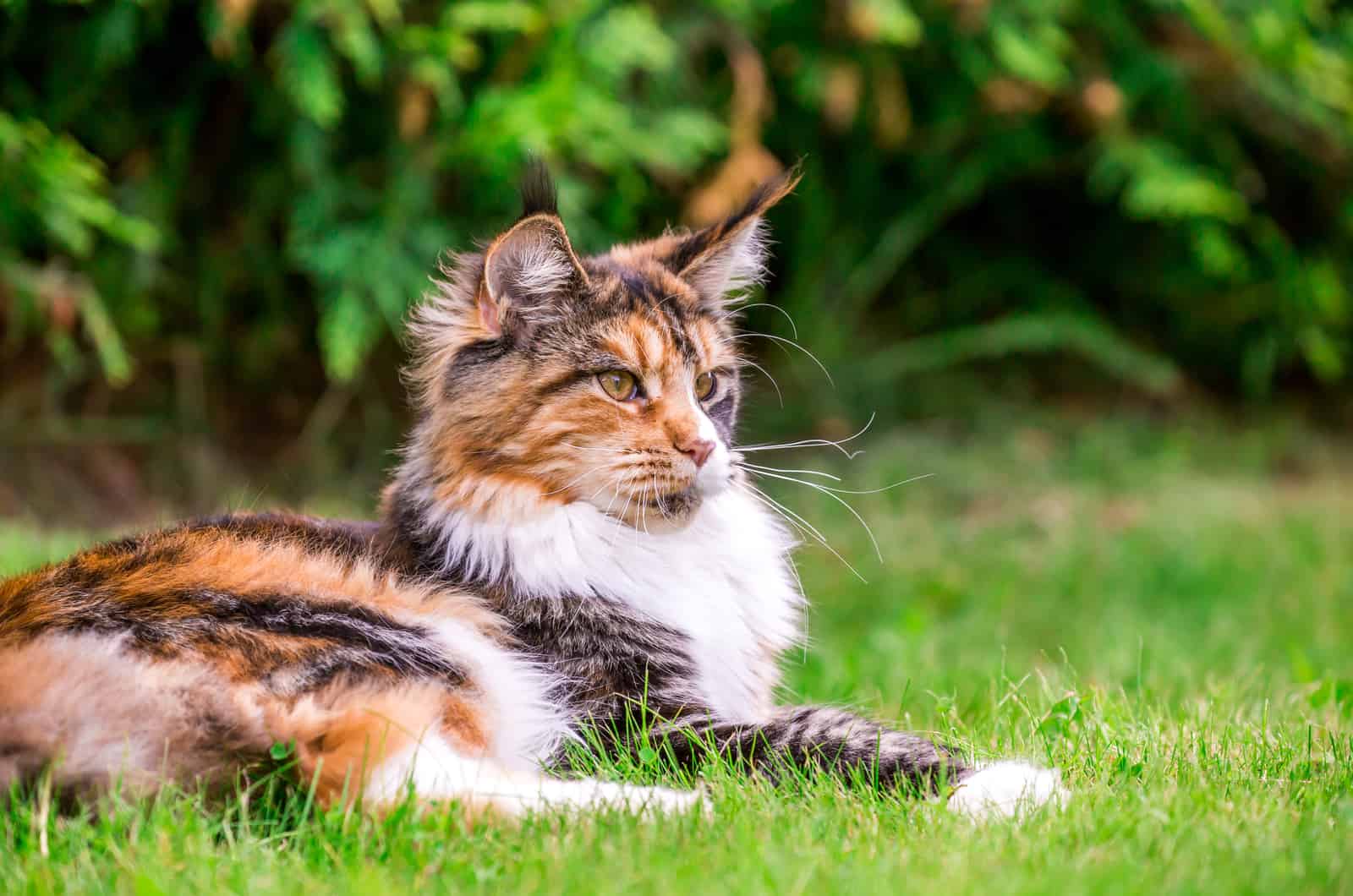
Although many individuals claim to be “allergic to cats”, that isn’t really the case. No one is allergic to cats; instead, people are allergic to the specific kind of protein that cats generate.
Cat saliva naturally contains a protein known as Fel D1. The skin of the cat also contains glands that manufacture it.
This well-known cat allergen can be found on the skin, in the saliva, and in the fur of cats (cats transfer their saliva to their coat as they groom themselves).
More About Fel D1 – “The Cat Allergen”
Fel D1 is renowned for being airborne and for having a propensity to stick around for a long time.
This means that if a household member has allergies, they will breathe in the cat allergen and may experience an allergic reaction.
Another characteristic of Fel D1 is that it adheres readily to the surfaces it touches; thus, simply airing out the space will not get rid of it.
It’s interesting to note that the Fel D1 protein’s purpose is as yet unknown. But we can be certain that it is the primary cat allergen responsible for allergic responses in people.
How Does This Cat-Produced Protein Cause Allergy Symptoms?
Pet hair alone is not an allergen, despite what many people believe.
Cat hair can contain the cat’s saliva (due to grooming), as well as dander (flakes of skin that can contain the cat allergen due to the glands producing it).
When a cat sheds, the hair can be dispersed randomly around your home. It can accumulate on carpets, furniture, and bedding and even hang suspended in the air for a very long period.
That means you will come into contact with it sooner or later. And if you’re sensitive to it, you will experience allergy symptoms.
What Are Some Allergy Symptoms Caused By Fel D1?
• Running nose,
• Stuffy nose,
• Sneezing,
• Nasal congestion that causes pain in the face,
• Wheezing,
• Shortness of breath,
• Chest tightness,
• Red, itchy, or watery eyes,
• Hives or a skin rash,
• Anaphylaxis in severe cases.
Why Do These Allergy Symptoms Arise?
These common symptoms of allergies arise due to the activity of an antibody known as IgG.
Your immune system will create IgG antibodies once it has come into contact with specific allergens.
Sneezing, coughing, a runny nose, and watery eyes are a few common allergy symptoms that are also brought on by these IgE antibodies.
This helps in the body’s removal of the irritant, but it is quite unpleasant and can make us feel ill.
Great News – Maine Coons Don’t Shed A Lot!
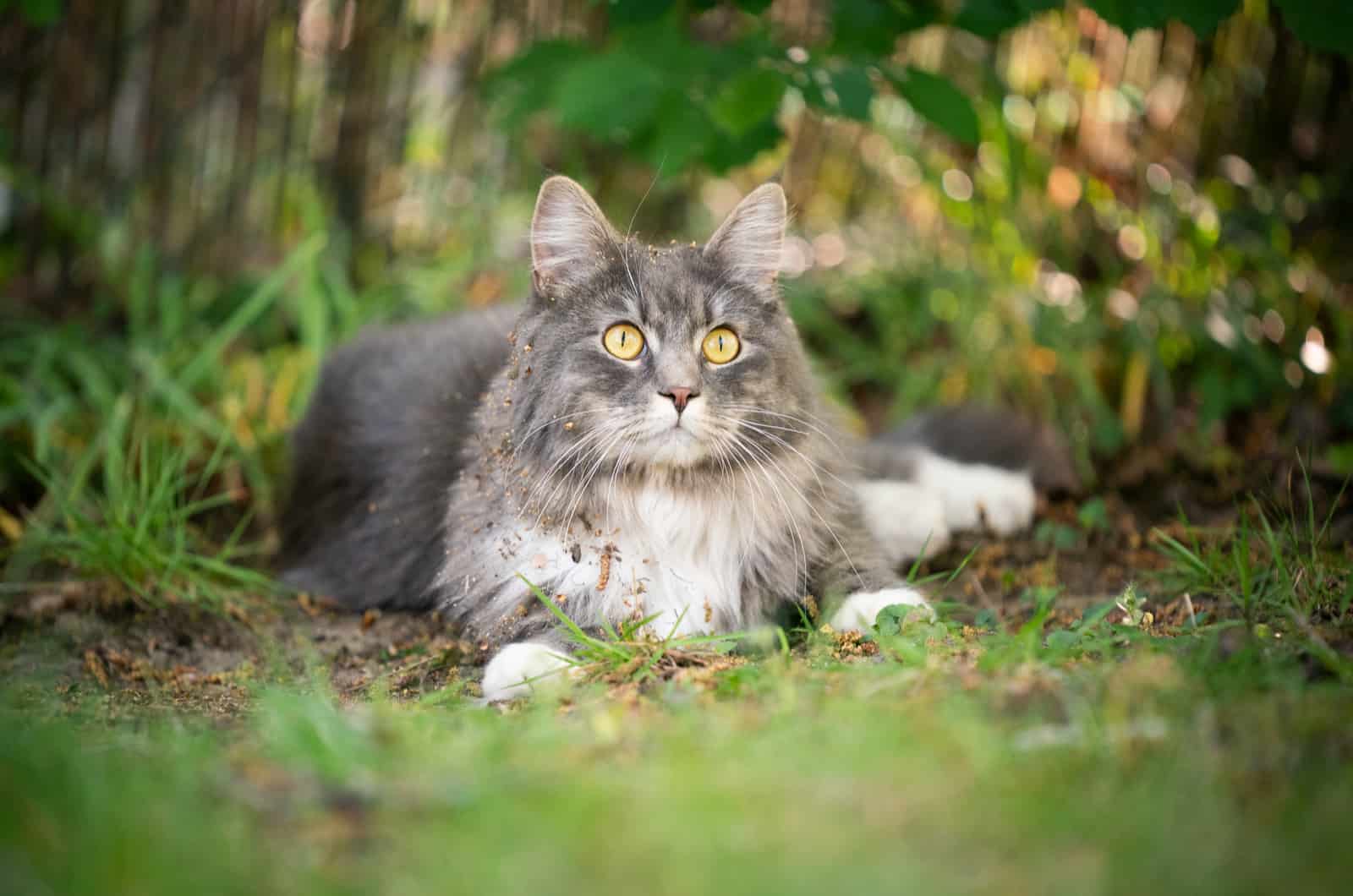
A lot of cat allergens are carried by a cat’s fur. This is because all cats groom themselves daily and multiple times a day…
When cats groom themselves, allergens from their saliva end up on their fur. And when their fur sheds, the allergy-prone individual is exposed to these allergens even more.
Therefore, if there is less hair loss, there is less risk of coming into contact with allergens.
Many people ask Are Maine Coon cats hypoallergenic for a simple reason – these cats have long fur and long fur means a lot of shedding, right? Well, not really.
Even though some Maine Coon cats will shed a lot, this breed is not typically noted for excessive hair loss, especially if you brush your Maine Coon frequently.
It is not a guarantee that they will shed more than other cats, even though you would intuitively expect them to. They may even experience less hair loss!
I Want A Maine Coon Cat, But I’m Allergic To Cats – What Should I Do?
If you want a cat and have a slight or mild allergy to cats, don’t lose all hope! With some adjustments, you too can have a pet cat (tips and tricks for doing so will be given further on in the article).
However, if you’re severely allergic to cats, I think it’s best to decide against having a pet cat. The presence of a cat will most likely always trigger an allergic reaction if you’re highly sensitive to the cat allergen.
All cats, whether they have long hair, short hair, or even no hair (like the Sphynx), release allergens to some extent.
How To Live With A Maine Coon Cat If You’re Cat Allergy-Prone
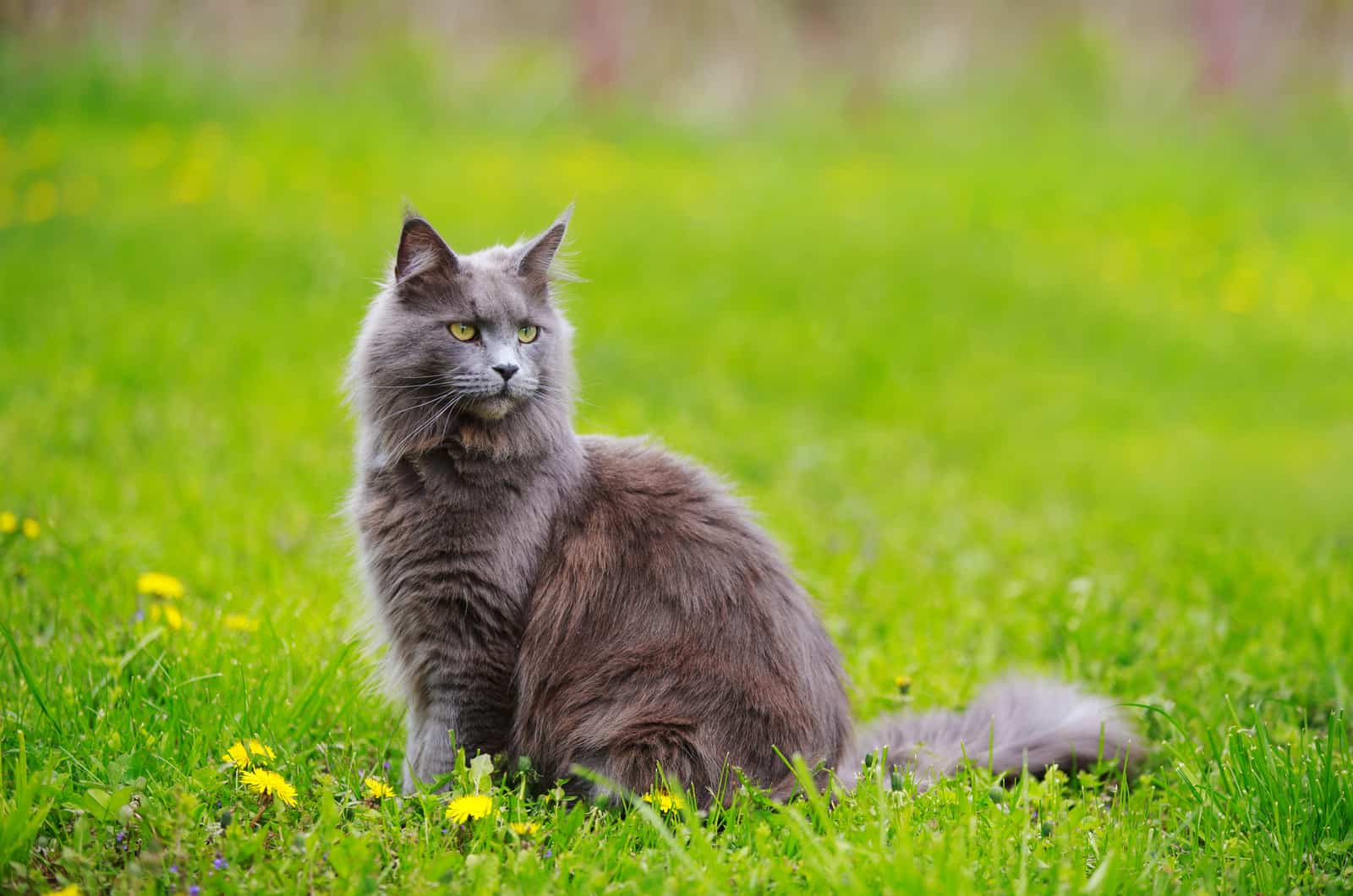
Many people can manage their cat allergies as long as they take the proper precautions.
You and your cat will be prepared for many years of sneeze-free living if you take steps to limit allergens in your home. How do you do that? Some tips are given below!
#1 Make Sure Your Cat Is Groomed Frequently
Professional grooming can play a significant role in ensuring that a member of your household (or you) who has allergies can live in harmony with your cat.
Regular grooming results in healthier coats and less shedding in cats.
Because regular grooming means reduced shedding, regular brushing can help avoid allergic reactions; your cat will also welcome the reduction in hairballs!
#2 Avoid Grooming The Cat Yourself
Allergy sufferers should stay away from direct exposure to cat allergens.
By that, I mean limit exposure to cat dander (dead skin that potentially carries cat allergen due to the skin’s sebaceous glands producing it) and cat hair (that carries the cat allergen transmitted through the cat’s saliva via self-grooming),
If you’re grooming the cat yourself, you’re at direct exposure to the allergen, which you definitely do not want, as your allergy symptoms will probably occur soon after the exposure.
#3 Vacuum Daily
Cat hair is an allergic person’s worst enemy as it carries irritants (protein Fel D).
Therefore, getting rid of as much shed hair as possible should be the priority. Apart from regular grooming, a way to do so is to vacuum daily.
The vacuum cleaner will take up cat hairs and hopefully prevent them from causing an allergic reaction.
However, if possible, another non-allergic person should be doing this. Why? Because vacuuming also stirs up dander, it becomes airborne again, which can cause an allergic reaction for a sensitive person.
#4 Clean Smooth Surfaces Daily
When your home is clean, there will likely be less hair and dander, resulting in less Fel D1, the cat allergen that triggers your allergic reaction.
So make sure to routinely clean the areas where your cat spends time, check that your home’s floor is allergen-free, and hopefully, your allergy problems will be less severe.
#5 Clean the Litter Box Regularly
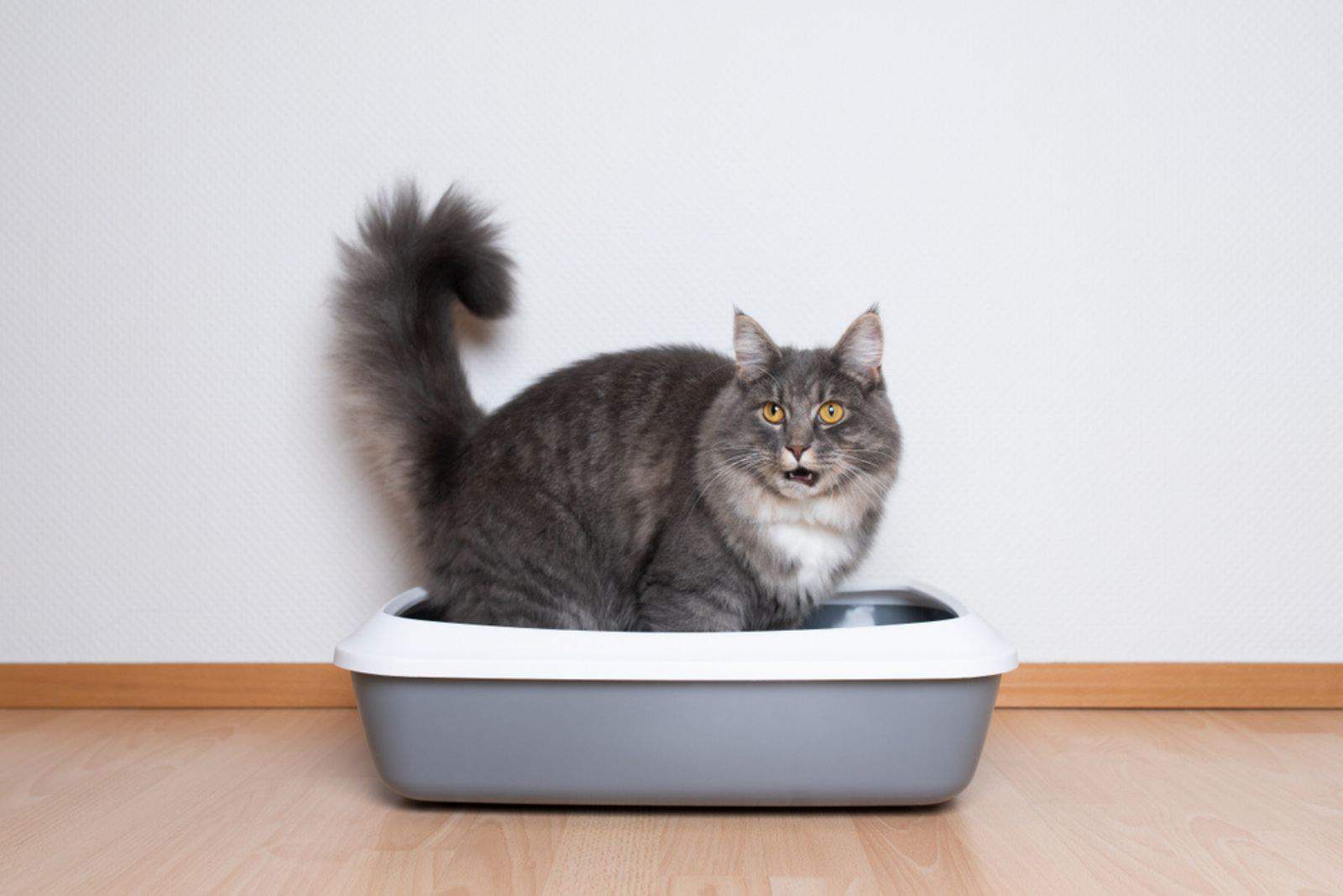
Regularly cleaning the litter box will reduce allergies because cat pee contains the same proteins as saliva, hair, and dander.
Cat urine also contains the Fel d1 protein, and this allergen is secreted in large amounts every time your cat uses the litter box.
Any dried urine you come into contact with could cause an allergic reaction since cat urine contains the Fel 1d protein.
#6 Try Staying Away From The Cat’s Litter Box
Since cat pee contains allergens, stirring up your cat’s litter box could result in an allergic reaction. This is especially true for Maine Coons, who make more pee than other smaller breeds and have extra-large litter boxes.
Therefore, it is preferable to ask someone who isn’t allergic to cats to scoop the litter box daily and do the weekly clean whenever it is practical.
But if you have to do it, make sure to wear gloves or wash your hands immediately after handling the litter box.
#7 Wash Your Cat’s Blankets Regularly
Your cat’s blankets might be your worst nightmare. They are essentially traps for shedded hairs and cat dander (aka the carriers of the cat allergen that’s causing your allergy symptoms).
It’s essential to wash your kitty’s blanket regularly to get rid of as much cat hair and dander as possible.
#8 Try Staying Away From The Cat’s Bed
Your cat’s bed also probably contains more cat hairs than any other piece of furniture.
It’s where your cat spends a considerable amount of time and is constantly rubbing its fur against it, meaning quite a few hairs will be present there.
Also, there is probably more dander build-up than in any other place in the house.
Therefore, make sure your cat’s bed is not in your sleeping area or an area where you spend a lot of time. This should be done to limit your exposure to the cat allergen.
#9 Open Up The Windows Frequently
A straightforward technique to assist visitors with pet allergies in your home is to keep the air fresh.
To let the allergens out, open some windows, run a fan, or use the air conditioner. This one suggestion might be helpful for visitors who have mild allergies.
Make sure your guests aren’t additionally allergic to other allergens as well as their pet allergies before opening the windows because doing so can let in dust and pollen.
#10 Try Dander-Removing Wipes
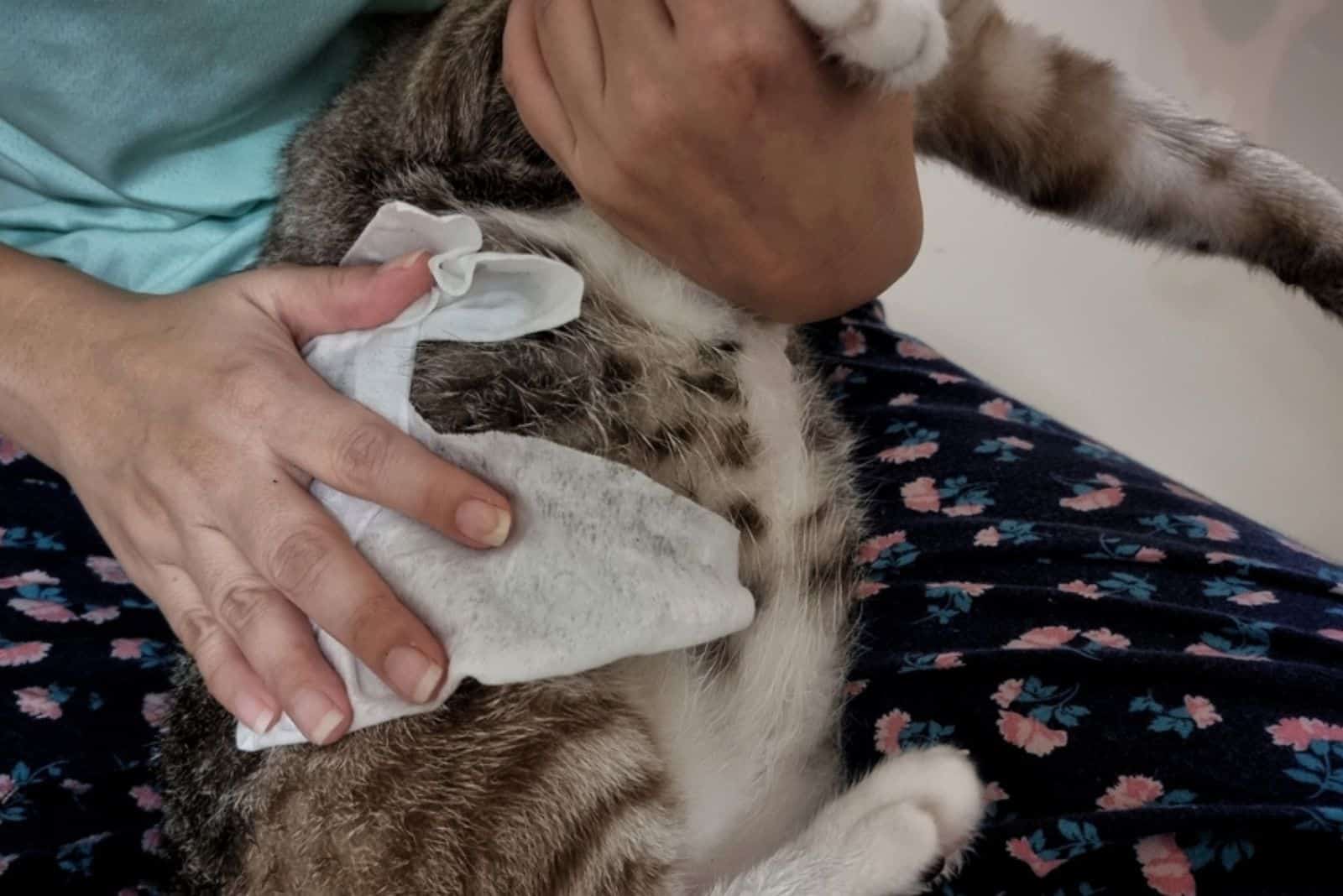
Dander-removing wipes significantly reduce the quantity of dander and shedding that cats produce.
Therefore, cat owners prone to allergies anticipate that dander-reducing wipes will effectively reduce their allergy symptoms.
However, they aren’t a magic solution for you. Even the greatest hypoallergenic cat wipes won’t be enough to help you if your dander allergies are too severe.
#11 Limit The Time Your Cat Spends In Rooms With Carpets
You can think of carpets as dander and hair traps, and they retain all shed hair that falls on them, as well as cat dander. Even with vacuuming, a lot of hair and dander remain on the carpet.
You can make sure your cat does not spend a lot of time in rooms with carpets. You should especially apply this in your bedroom.
#12 Replace Upholster Furniture
Upholstered furniture should be swapped out for non-upholstered furniture or recovered.
No matter how well you clean, cat allergies will always be triggered by allergens in soft furnishings like carpet, area rugs, beds, and curtains, in addition to upholstered furniture.
Moving furniture out of your bedroom and into another room is an alternative if replacing or reupholstering it isn’t possible.
#13 Wash Your Cat
Not a lot of cats love water. Your cat grooms itself clean, so frequent baths are absolutely not needed. However, they might be a good option if the cat owner is mildly allergic to cats.
The extra protein still retained on the fur coat will be removed by bathing.
Try giving your cat a warm water bath with pet-safe soap. Some cats would find this practically impossible, but some don’t mind. Regular baths for your cat can help lessen her dander, but brushing her is more efficient.
The benefit of this is that Maine Coons enjoy the water, making frequent bathing easy. Use shampoo made exclusively for cats while washing your cat to prevent skin irritation.
#14 Get A HEPA air filter
People who have sensitivities to airborne allergens can benefit significantly from air purifiers, such as the Hepa filter.
The HEPA air filtration system is a kind of air purifier gadget. High-Efficiency Particle Air is referred to as HEPA. As air passes through the filter, these devices capture airborne allergens.
In this method, cat allergens—specifically, flakes of skin and hair that transmit allergens—are effectively captured and kept from escaping. The outcome is clear air devoid of the allergens that trigger an allergic reaction!
#15 Try Anti-Allergen Sprays
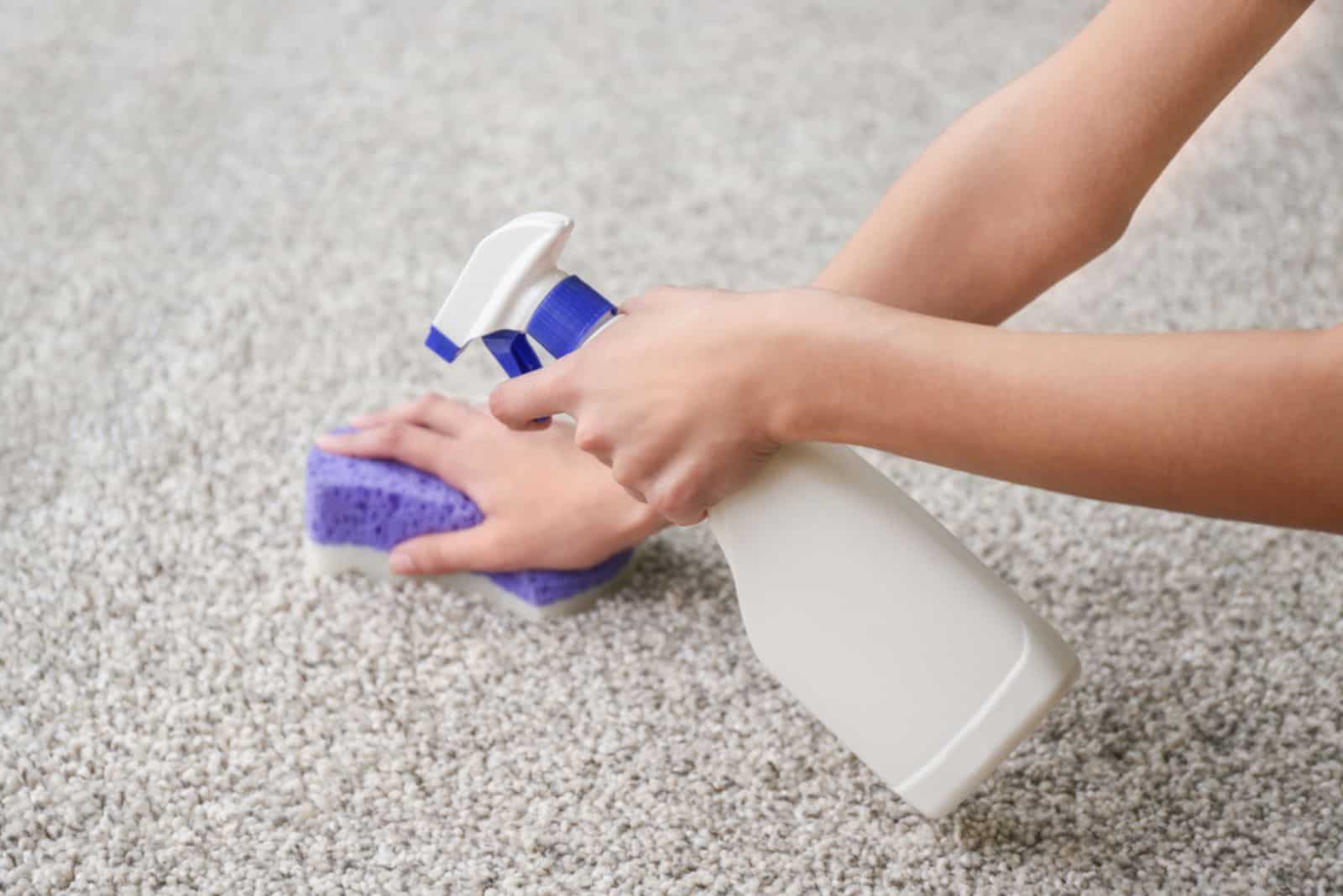
Anti-allergen sprays can also thoroughly clean and eliminate pet allergies from difficult-to-clean surfaces.
These sprays, available from your local pet store, can eliminate various allergies, such as pet dander, pollen, and dust mites. They oxidize the chemicals and destroy them.
Spray the product over the carpets, windows, curtains, and furniture in your home to use it. After a few hours of drying, vacuum up any residual dried product.
Use these sprays on all the areas around your house with high levels of allergens at least once every 30 days for the best results.
#16 Change Your Cat’s Diet
When you own a cat, some hair shedding is unavoidable, but there are things you can do to minimize hair shedding in your Maine Coon cat.
Feed your Maine Coon high-quality dry food that is fatty acid-rich in both Omega-3 and Omega-6.
#17 Get A Female Cat Or Neuter Your Male Cat
A study about the difference in Fel D1 protein production between male and female cats confirmed that male cats produce more Fel d 1 than female cats.
The study used five adult male cats and five adult female cats. Male cats had a higher Fel d 1 level in their first skin wash than female cats. It was also observed that male cats produced more Fel D1 during a 24-hour period.
Also, we now know neutered male cats produce less Fel D1 than intact male cats. Therefore, you might consider getting a female cat or a neutered male cat as a pet.
Suggested: Are Calico Cats Hypoallergenic? Everything You Need To Know
#18 Talk To Your Doctor About Your Allergies
It would help if you visited a doctor who will prescribe anti-allergy drugs when all else fails. Using these drugs, you can treat the symptoms while sharing your home with your Maine Coon.
To aid with triggers, you can purchase antihistamines or decongestant sprays. To provide a long-term solution, your doctor may suggest immunotherapy if the allergies worsen. Medication should only be used as a last resort and is not advised for long-term use.
Taking anti-allergy medicine is a practical approach to stop an allergic reaction from developing entirely or becoming severe. Of course, there is no assurance that these drugs will function flawlessly all the time, but they do for many people.
What About Other Cat Breeds?
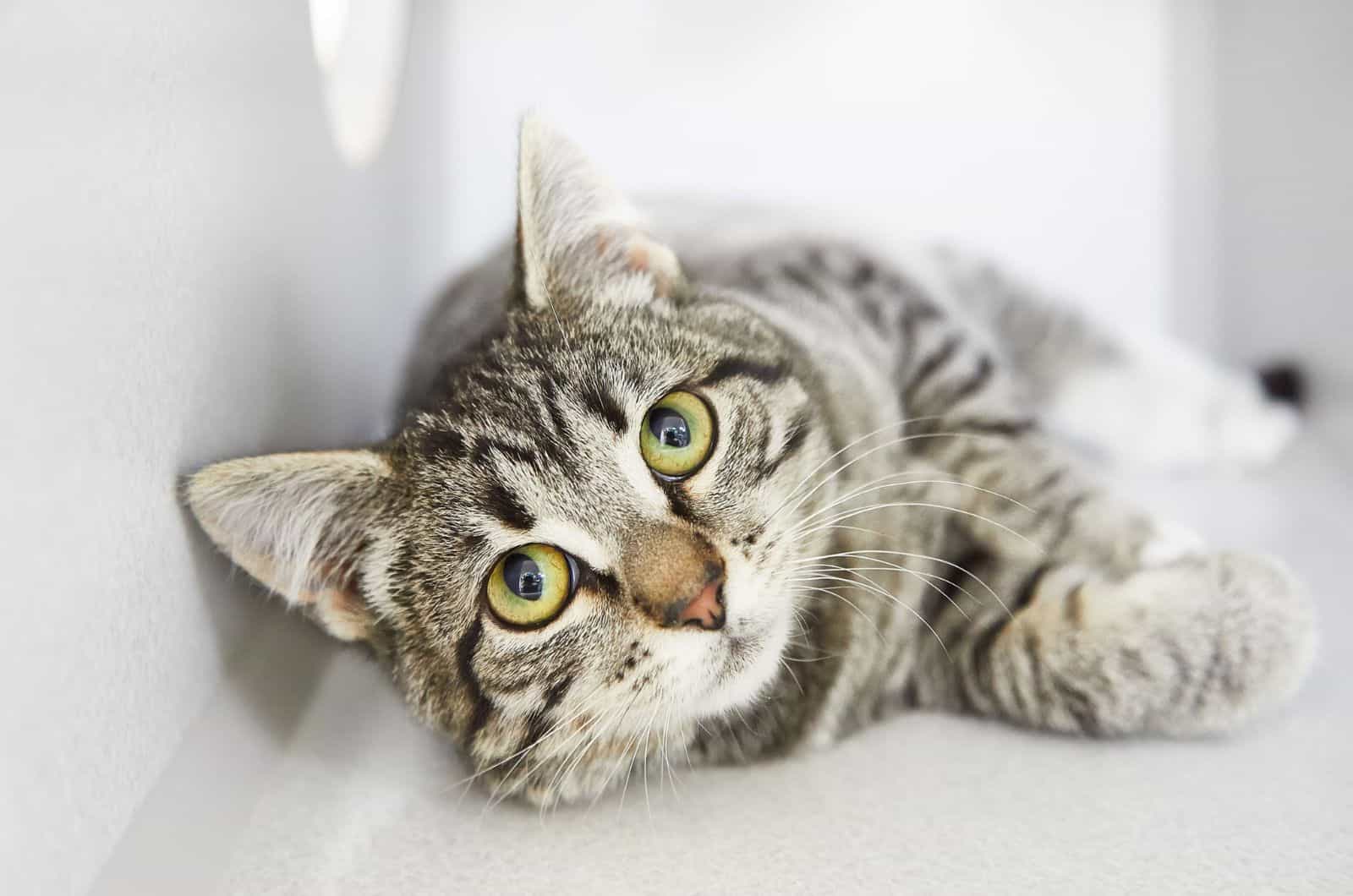
These breeds are less likely to induce allergic reactions in people who have cat allergies, but they still contain some cat allergens. They can still trigger allergic reactions; they merely produce less of the cat allergen.
It should come as no surprise that searches for a hypoallergenic cat are common, given that between 10 and 15 percent of people are said to have some degree of cat allergy.
Cat breeds with low production of the cat allergen (aka hypoallergenic cat breeds) are:
• Sphynx
• Siberian
• Devon Rex
• Cornish Rex
• Balinese
• Javanese
• Oriental Shorthair
• Russian Blue
• Siberian cat
Suggested: Are Bengal Cats Hypoallergenic? Here’s What You Need To Know
What Is The Best Cat For Someone With Allergies?
The Sphynx cat is the most allergy-friendly cat. These cats have no hair, and hair is the top cat allergy carrier.
Lack of hair indicates that allergen levels are low enough that even allergy-prone people rarely experience an allergic reaction.
So the Sphynx can be the ideal cat breed for you if you have a very high sensitivity to even tiny amounts of cat allergen.
In Conclusion
I’m sure you know how terrible and uncomfortable allergy symptoms may be if you have allergies or know someone who does.
Sadly, some people may have allergies to the kitties they adore the most! In this case, that would be Maine Coon cats.
Are Maine Coons Hypoallergenic? No, technically, Maine Coons are not hypoallergenic, and no cat breed is truly hypoallergenic.
Maine Coons are “more hypoallergenic” than most other cats, making them suitable pets for less allergy-sensitive people.
A protein (known as Fel D1) is the causative agent of allergy symptoms like a runny nose or sneezing!
Even though Maine Coons do produce it, and it is commonly found on their fur, the fact is that Maine Coons are not heavy shedders, meaning the allergen-spreading is quite limited.
If you’re one of the “less sensitive” but still allergic to cats, I’m sure you’re very happy about this! There are ways to cope with a cat-allergen presence and still enjoy the company of a cat. You will need to do a lot of extra work around the house, but I’m sure it will be worth it!
However, if you are very sensitive to the cat allergen, no amount of cleaning can make your allergy symptoms disappear…
I hope you find this article interesting and have learned something new!
If you’re interested in reading more about the beautiful Maine Coon cats, I suggest you check out some of these articles:
• Orange Maine Coon – All About This Fascinating Color
• Maine Coon Cat Price And Costs – Are They Worth The Money?
• The RagCoon – A Majestic Maine Coon Ragdoll Mix
Like this post? Share or pin it for later!
